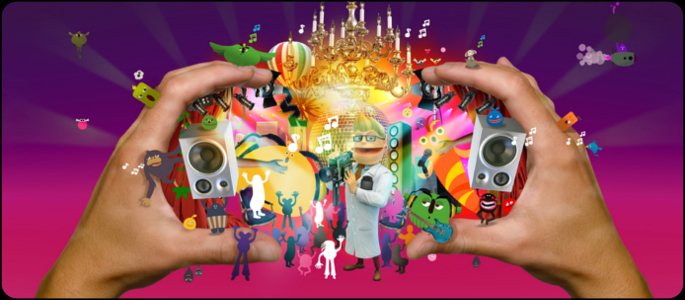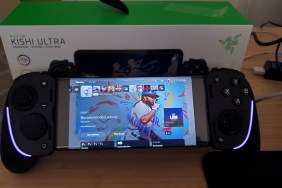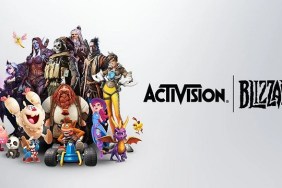There’s a battle ongoing right now between all the major entertainment and tech companies in the world over a market worth countless billions of dollars – a battle to control the digital ecosystem of the future. PlayStation LifeStyle delves into who’s fighting, what they’re fighting for, and how each company aims to win.
Since the internet became a viable platform for the sale of digital entertainment, companies have dreamed of becoming the ultimate digital superstore, a place where everyone buys and rents their music, their films, their games, their audiobooks, their ebooks, their apps – essentially where consumers buy everything that is digital. Once consumers have begun to grow a sizeable library of digital data that only runs on one digital ecosystem, it then becomes increasingly unlikely that they’ll move away. Fast forward over 20 years since the creation of the world wide web, and some companies have already begun to realize that dream, but no one has achieved true dominance, meaning that is a lot up for grabs.
Apple were one of the first companies to dive head first into trying to achieve this goal – and are still reaping the rewards. iTunes, which introduced a digital store in 2003, quickly became the dominant online music store, and later expanded into TV shows and movies. Combined with the highly successful iPod product line, the company rose to new heights, something that it managed to beat with the iPhone and iPad. Now, Apple has a huge market share in the smartphone and tablet business, with a tight control on their digital ecosystems. With no signs of slowing, and rumored plans for an “iPanel” Apple TV, the Californian-based giant is seen as the one to beat when it comes to all things digital. But their success is far from guaranteed.
Easily Apple’s closest and fiercest rival, Google is also investing heavily to control the market – although the main reason Google created the Android operating system was to ensure their search engine would be successful in the smartphone era. Google has only just begun to realize to potential of monetizing their platforms, relaunching the Android Store as the far better Google Play last March. With a million Android phones registered worldwide every single day, Google is a powerhouse in the world of ecosystems – a sizeable percentage of the 400 million or so Android users will build up a library of apps, games and Google Play products, ensuring that they’ll continue to buy Android products, making Google more and more money. That’s why Google’s newly announced Nexus 7 tablet is sold at such razor thin margins – the tablet isn’t where the money is made, it’s the ecosystem. On top of Android, Google has at its disposal the world’s most popular browser, Chrome, which has its own store; the world’s largest video sharing website, YouTube, which rents films already, and is a perfect platform for more shows and cloud gaming; the 150 million-user strong Google+; and the main Google search page, which is essentially the world’s most valuable page to place adverts.
But the openness of the Android platform causes some problems for Google, meaning that they can’t have the monopoly that Apple has on their ecosystems. Apple has a tight control on apps that are published, and doesn’t let rival apps through (OnLive’s app for example) as well as taking a 30% cut on in-app purchases meaning that apps like Kindle can’t sell their wares if they want to make a profit. Google, on the other hand, has far less control over their own store (something that is arguably better for the customer), putting up apps that are in direct competition with Google Play’s marketplace.
The actual Android operating system is also too open for Google’s own good, allowing Amazon to take it and use it on their Kindle Fire tablet, while stripping Google Play and all the products that make Google money (outside of search). With Kindle Fire, Amazon made a play for their own digital ecosystem for tablets, again selling the hardware at a low margin to hook people into their ecosystem. After-all, the company is the world’s largest online retailer, and they don’t want all their sales eaten up by the fact that people are no longer buying physical products. But the Kindle Fire (and the Fire 2, which is probably coming out later this year) are only the tip of the iceberg for Amazon, with Kindle eReaders having a strong position in the eBook marketplace; Audible having a near monopoly on audiobooks; their Amazon Instant Video and LoveFilm services offering streaming video services; the Amazon App Store available on Android phones; Amazon MP3 selling music with a strong cloud focus and the company selling digital downloads of PC games. Amazon clearly has their eyes on expanding further into the field, and scares both Apple and Google, who fear what the company has up their sleeves.
Samsung, and other hardware makers like LG, also have their own ecosystems for their products that have a strong chance of being successful on their platforms. Samsung in particular is strong candidate to create a powerful digital ecosystem, as it’s the world’s largest smartphone maker and the world’s largest TV manufacturer, all while having their fingers in just about every technology pie out there (other than games consoles). The company has bold plans for the recently released Samsung Music Hub, with TJ Kang, SVP Media Services for Samsung, telling Pocket-lint:
We aren’t about niches. We want to have the largest catalogue. We want to be bigger than Apple.
Then there’s Microsoft, once king of the tech world, but now a company that has fallen from grace as the mobile world sped past them. But while it’s easy for some to write them off and call them a fallen giant, or a dinosaur, the Redmond-based company is far from dead. Steve Jobs may have proclaimed that we’re in a post-PC era, but Windows is still a multi-billion dollar product used by an incredible number of users, something that will likely only improve with the release of the upcoming OS Windows 8. Unfortunately for Microsoft, as Windows has to be incredibly open as it’s for PCs, the company has virtually no control over the digital ecosystems on their platform, meaning users can consume entertainment over iTunes, Amazon, Google Play and more. But that may be set to change. Microsoft obviously won’t change how open Windows 8 is as it’d kill their golden goose, but the company is gearing up to ‘prioritize’ their ecosystems. Microsoft has made it clear that there will be some sort of Xbox connectivity with Win 8, perhaps going as far as allowing Xbox games to play on PCs, but probably having a streaming option or a store.
Mike Delman, Microsoft’s vice president of global marketing in the interactive entertainment business unit, told The Seattle Times last year:
Live has been successful on the Windows Phone. Live will be built into the PC. It will be the service where you get your entertainment. We were talking about it — you will not just see consoles and handhelds at this show next year, this show’s going to morph into other devices.
Continuing:
There will be a lot of similarities in design and service philosophy. Whether it’s us or Apple or anybody else, people want to be able to navigate through multiple devices in a certain ecosystem very seamlessly so we’re committed to that.
This is something that will similarly happen with Xbox Music, their upcoming music service. Microsoft has also finally managed to create a viable mobile OS – after the decent, but small-time Windows 7 Phone, the company is putting a huge amount of money into the critically-well-received Win 8 Phone OS. In partnership with Nokia, as well as other OEMs, it’s possible that MS could carve out a decent marketshare of the smartphone OS. Microsoft Surface, the promising looking tablet with a keyboard, also has a chance at making an impression in the tablet world. Every Microsoft phone and tablet sold locks people into their ecosystem, with their app store once again being where they’ll make the majority of profits. Of course, any article on Microsoft’s ecosystems would be flawed without mentioning the actual Xbox console, which has been responsible for billions of dollars in revenue from the sales of games, films, TV shows and the subscription charge to use Xbox Live. Not only is the Xbox brand incredibly strong with a lot of gamers, but many will upgrade to the next system due to their investment in the Xbox ecosystem (as well as the genius move of getting people to care about meaningless Achievements).
That leaves Sony, once as big as Samsung is now, the Japanese tech company has fallen spectacularly, hemorrhaging money year after year as its Walkman lost relevance, its TVs stopped being profitable (by quite a margin) and every market Sony dominated began to dry up or were eaten up by Samsung or Apple. If Sony had acted sooner, had gotten a foot into the digital MP3 player earlier, had been more competitive in its markets and had actually used its different sectors together to utilize the power of its hardware and entertainment groups to create a powerful digital product, perhaps things would be different. But Sony missed huge opportunities, causing their share price to plummet. Luckily, things are slowly turning around. Having bought out Ericsson for $1.5 billion, the company might be able to produce phones that a decent number of consumers actually buy, Music Unlimited is finally a viable iTunes competitor (not a killer, but a decent alternative), and there are signs that the internal groups are working together more effectively. PlayStation, one of the most profitable sectors at Sony, has millions of gamers that buy games, films and music, but the content is still locked to the console. With the purchase of Gaikai, this content finally has a chance of being cross-platform, so your entertainment can be found on any device, courtesy of Sony. If Microsoft is slow to get into cloud, and Sony is uncharacteristically aggressive, there’s a chance that they could dominate the core-gaming ecosystem of the future. And perhaps, just how dominating MP3s on iTunes gave Apple the ability to gain users and go on to dominate pretty much everything else digital, PlayStation-cloud could give Sony a strong ecosystem that ensures their future.
There’s still a lot that could happen in the coming years, but as we continue to invest in entertainment ecosystems, we’re already siding with companies in the hopes that our apps, games, music and the like will be compatible with the next-generation of products. Which ecosystems are you a part of, and who do you think will win? Let us know in the comments below.








